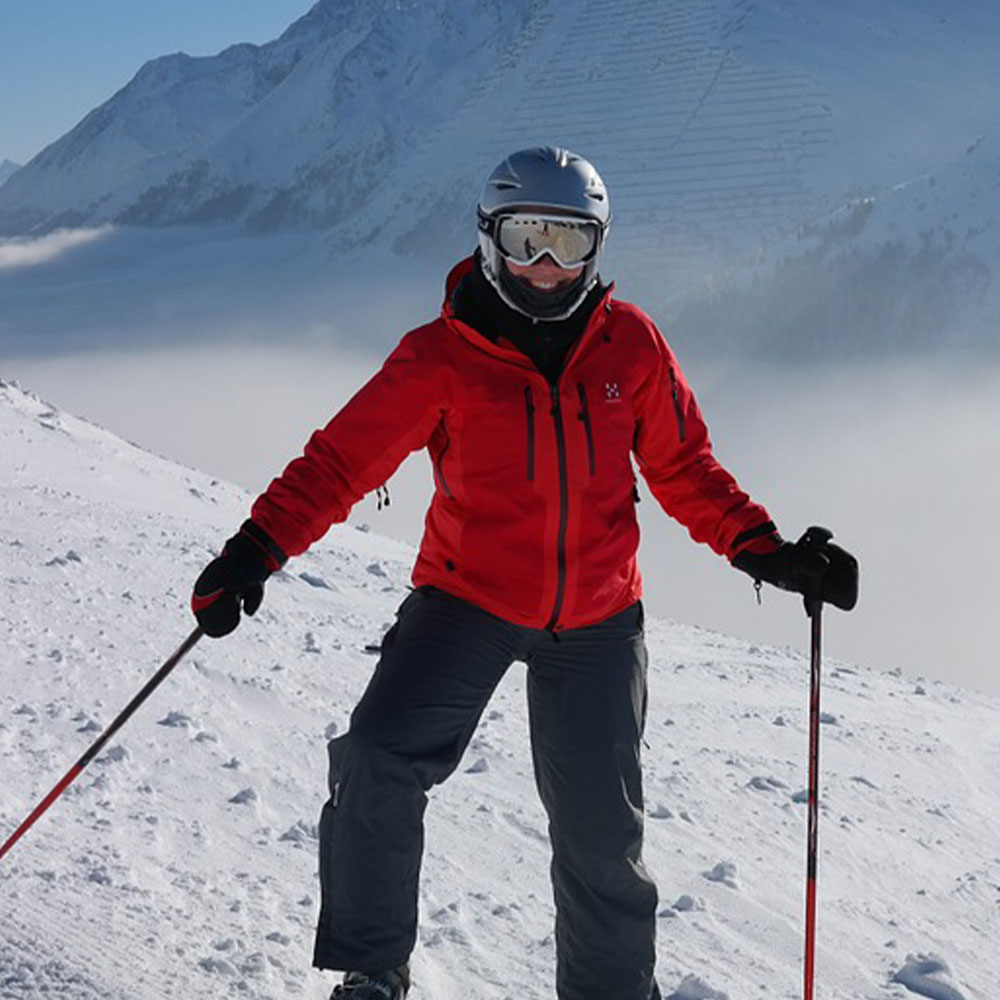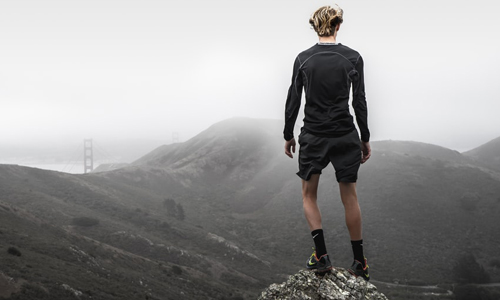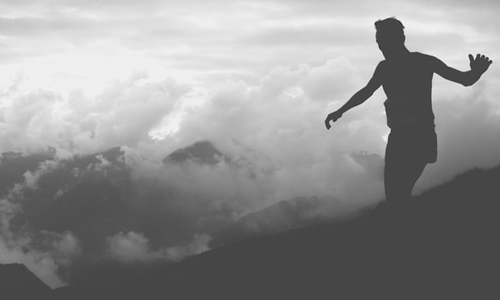A Guide to exploring Trails and Hill Running at Night
Author

A keen runner, skier and nuts about cycling. Karl lives in Cumbria, where he loves encouraging his two children to follow in his outdoor lifestyle. Whilst out and about keeping active, Karl keeps a diary and shares it with Outdoor Look.
As the nights draw nearer, runners have to run in the dark, either early in the morning or late in the evening. I am here to share some tips and advice you about how running in the dark can be made safer on the trails or hills.
The Unusual Concept of Night Running
If you look at it practically, as the winter approaches, the days keep getting shorter and the nights longer. One of the most convenient and simple ways is to stick to the pavements with the streetlights or go for a run in a park nearby but we I am here to tell you the pros of going for a run, on trails or in the hills. These runs are completed with a head torch tied to you and finding your way through familiar and unfamiliar paths. It is fun and interesting.

Benefits of Trail Night Running
Trail running or hill running in the dark can be refreshing It is a great way to relax after a stressful day at work and stretch your body. Being amidst the nature helps improve mental health as it releases feel-good hormones. It is also better for the joints and there are less things to stop you on your way than on a city road.
Essentials You Might Need
Winter nights are chillier and even the evenings can get a bit cold after the sunset due to a considerable dip in the temperature. Running at night on a trail or the hills comes with its own dangers. The weather could change dramatically or you could accidentally trip and fall. So, it is important that you pack your emergency kit keeping all things in mind.
- Merino wool socks
- Footwear fit for trail running
- Tights or shorts depending upon the temperature and forecast
- A beanie hat or a buff to cover your ears and head
- A basic inner layer to keep you warm
- Gloves (if needed)
- An energy bar and water
- A high lumen head torch
- A lightweight waterproof jacket
Emergency Kit Basics
- A spare head torch or batteries
- Fully charged cell phone
- Lightweight waterproof trousers
- An insulated jacket in case of uncertain temperature dips
- Emergency Survival bag (a bivvy bag or a foil blanket)
- Extra pair of gloves and hat
- Energy drinks to keep yourself hydrated at all times and light snack n
- First Aid Kit- Rather than carrying the traditional first aid kit, carry things that might be of use if you get injured. Carry something to stop the bleeding as well as some pain killers. Carrying good quality gauze, bandages and safety pins is a good idea as there is no knowing what the darkness of the night hold.

Some Tips to Ensure Safety
- Stick to a route you are familiar with
- Go running with a partner to prevent chances of getting lost
- Start from short routes as you start
- Tell a third-party about your route
- Download a map on your phone for better location access
- Be familiar with mountain rescue assistance
- Keep an eye out for second-hand items
Night running is therapeutic but it has its risks. That said, a little adventure never hurts and neither does a bit of exercise.
Author

A keen runner, skier and nuts about cycling. Karl lives in Cumbria, where he loves encouraging his two children to follow in his outdoor lifestyle. Whilst out and about keeping active, Karl keeps a diary and shares it with Outdoor Look.
Categories
- Sport (28)
- Product Reviews (3)
- Team Outdoor Look (7)
- Mike Wild (2)
- Mike Payton (2)
- Suse Hammond-Pears (3)
- Snowboarding (12)
- Latest Offers (105)
- Shop Talk (1)
- Competitions (7)
- Walking (413)
- Lifestyle Fashion (8)
- Travel (86)
- Kit Guides (176)
- Workwear Clothing (6)
- Safety Workwear (4)
- Health/Fitness (289)
- Skiing (91)
- Great Outdoors (1316)
- Cycling (92)
- January 2025
- December 2024
- November 2024
- October 2024
- September 2024
- August 2024
- July 2024
- June 2024
- May 2024
- April 2024
- March 2024
- February 2024
- January 2024
- December 2023
- November 2023
- October 2023
- September 2023
- August 2023
- July 2023
- June 2023
- May 2023
- April 2023
- March 2023
- February 2023
- January 2023
- December 2022
- November 2022
- October 2022
- September 2022
- August 2022
- July 2022
- June 2022
- May 2022
- April 2022
- March 2022
- February 2022
- January 2022
- December 2021
- November 2021
- October 2021
- September 2021
- August 2021
- July 2021
- June 2021
- May 2021
- April 2021
- March 2021
- February 2021
- January 2021
- December 2020
- November 2020
- October 2020
- September 2020
- August 2020
- July 2020
- June 2020
- May 2020
- April 2020
- March 2020
- February 2020
- January 2020
- December 2019
- November 2019
- October 2019
- September 2019
- August 2019
- July 2019
- June 2019
- May 2019
- April 2019
- March 2019
- February 2019
- January 2019
- December 2018
- November 2018
- October 2018
- September 2018
- August 2018
- July 2018
- June 2018
- May 2018
- April 2018
- March 2018
- February 2018
- January 2018
- December 2017
- November 2017
- October 2017
- September 2017
- August 2017
- July 2017
- June 2017
- May 2017
- April 2017
- March 2017
- February 2017
- January 2017
- December 2016
- November 2016
- October 2016
- September 2016
- August 2016
- July 2016
- June 2016
- May 2016
- April 2016
- March 2016
- February 2016
- January 2016
- December 2015
- November 2015
- October 2015
- September 2015
- August 2015
- July 2015
- June 2015
- May 2015
- April 2015
- March 2015
- February 2015
- January 2015
- December 2014
- November 2014
- October 2014
- September 2014
- August 2014
- July 2014
- June 2014
- May 2014
- April 2014
- March 2014
- February 2014
- January 2014
- December 2013
- November 2013
- October 2013
- September 2013
- August 2013
- July 2013
- June 2013
- May 2013
- April 2013
- March 2013
- February 2013
- January 2013
- December 2012
- November 2012
- October 2012
- September 2012
- August 2012
- July 2012
- June 2012
- May 2012
- April 2012
- March 2012
- February 2012
- January 2012
- December 2011
- November 2011
- October 2011
- September 2011
- August 2011
- May 2010
- April 2010
- March 2010
- February 2010
- January 2010
- November 2009
- October 2009
- September 2009


Submit a Comment